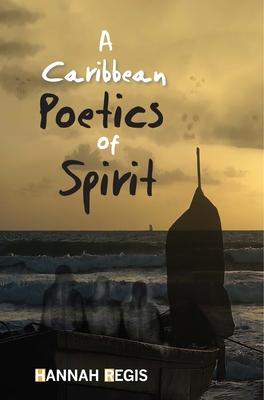
exploration into Caribbean literary articulations of non-material and numinous
presences. The study incorporates representations of African-Caribbean and Indigenous
mythologies, syncretic spirituality, and magico-religious practices. From texts
by ten writers, Hannah Regis extracts thematic and poetic references to
Caribbean spectrality, its formal properties, and signifying practices to probe
the nature and fictional representations of historical futures. Regis
links the haunting spectrality of the Middle Passage
with the lingering trauma and violence of the plantation order. She then raises
the issue of how the latter has impacted complex ontological schema and
considers how literary engagement with spirits operates as therapeutic
interventions to psychic maladies, and as a potential model for a Caribbean
aesthetic. This book also boldly re-conceptualizes ontological and
epistemological approaches to contest
colonial and neocolonial hegemonic ways of being. It provides a comprehensive
taxonomy of Caribbean creative and intellectual practices, and theories for
effectively categorizing and explaining the emergence and workings of spirit
presences. Regis combines diverse theoretical perspectives from a range of
scholars working within the traditions of postmemory, cultural memory,
spirituality and Caribbean philosophy to formulate a crucial counter-archival
history through which the voices of the oppressed find articulation and
belonging while indexing a repository of cultural, psychological and affective
expressions that are linked to the unfinished business of history. The writer
adroitly contends that a Caribbean poetics of spirit sits at the edge of a new
wave of literary criticism.
exploration into Caribbean literary articulations of non-material and numinous
presences. The study incorporates representations of African-Caribbean and Indigenous
mythologies, syncretic spirituality, and magico-religious practices. From texts
by ten writers, Hannah Regis extracts thematic and poetic references to
Caribbean spectrality, its formal properties, and signifying practices to probe
the nature and fictional representations of historical futures. Regis
links the haunting spectrality of the Middle Passage
with the lingering trauma and violence of the plantation order. She then raises
the issue of how the latter has impacted complex ontological schema and
considers how literary engagement with spirits operates as therapeutic
interventions to psychic maladies, and as a potential model for a Caribbean
aesthetic. This book also boldly re-conceptualizes ontological and
epistemological approaches to contest
colonial and neocolonial hegemonic ways of being. It provides a comprehensive
taxonomy of Caribbean creative and intellectual practices, and theories for
effectively categorizing and explaining the emergence and workings of spirit
presences. Regis combines diverse theoretical perspectives from a range of
scholars working within the traditions of postmemory, cultural memory,
spirituality and Caribbean philosophy to formulate a crucial counter-archival
history through which the voices of the oppressed find articulation and
belonging while indexing a repository of cultural, psychological and affective
expressions that are linked to the unfinished business of history. The writer
adroitly contends that a Caribbean poetics of spirit sits at the edge of a new
wave of literary criticism.
Paperback
$35.00